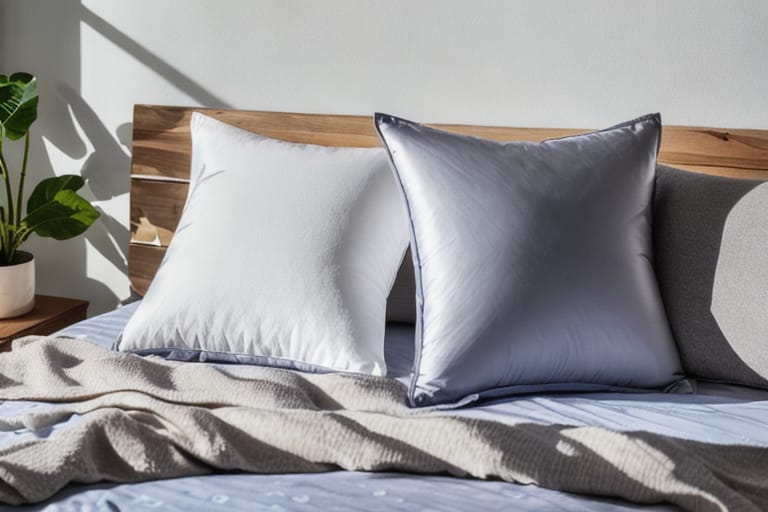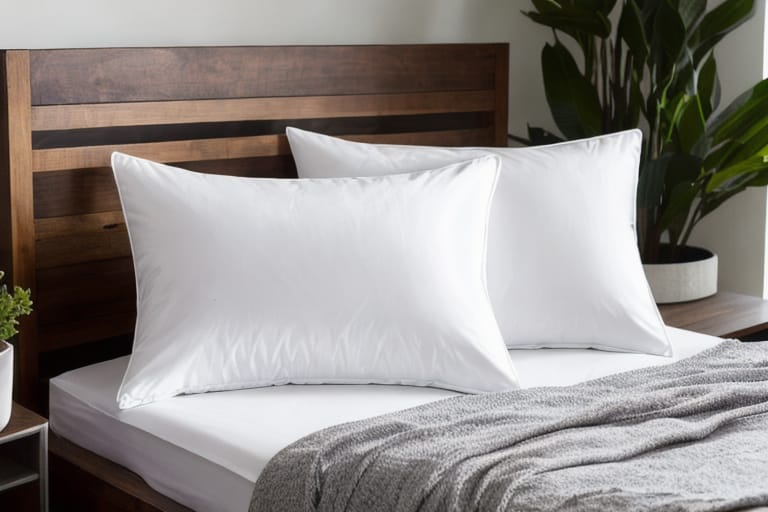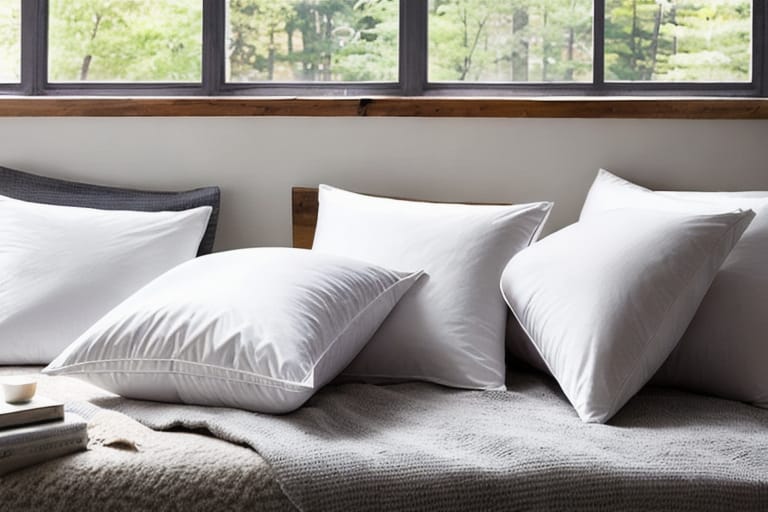With winter approaching, many of us look to down duvets and pillows to provide lightweight yet effective insulation and warmth at home or when traveling. But in recent years, ethical down has become an increasingly important consideration for consumers.
What is Ethical Down and Why Does it Matter?
Ethical down refers to down sourced from birds like ducks and geese using responsible animal welfare practices. This includes avoiding cruel techniques like live-plucking or force-feeding. It also means ensuring decent living conditions and humane treatment throughout a bird’s life cycle.
As consumer awareness grows around ethical issues in a range of products, demand for transparency and traceability in the down supply chain has increased. Many major bedding and apparel brands now prioritize sourcing certified ethical down to meet these expectations.
Using duvets, pillows, jackets and other goods filled with ethical down allows consumers to make compassionate choices supporting animal welfare when buying warm winter essentials.
Overview of the Down Production Process
To understand ethical considerations around down, it helps to learn about where down and feathers come from in the first place.
The production cycle involves multiple phases:
- Hatcheries – Baby ducks/geese are hatched from eggs
- Raising Farms – Birds grow to maturity over months
- Slaughterhouses – Adult birds are killed for meat
- Processing Facilities – Down/feathers are cleaned and sanitized after slaughter
- Manufacturers – Fill materials are sewn into end products like duvets
Ducks and geese are the primary avian species used in down production, with most birds coming from Europe and Asia. The majority are by-products of the food industry, meaning they are grown for meat or foie gras before their plumage is used.
Ethical Concerns in Sourcing Down
There are two major ethical issues associated with conventional downproduction:
1. Live-Plucking
One painful and stressful practice is live-plucking, where birds’ feathers are pulled out while they are conscious rather than collected after slaughter. Though illegal in many regions, undercover investigations have revealed ongoing live-plucking issues, especially impacting geese for lower grades down in certain parts of the world.
2. Force-Feeding
The production of foie gras using force-feeding raises animal cruelty issues as well. With this practice, ducks or geese have force-fed much more food than normal through pipes inserted down their throats twice per day to abnormally enlarge their livers.
Global Certification Standards for Ethical Down
To address ethical concerns, increase transparency, and establish higher welfare standards in the down industry, independent third-party certification programs have been developed over the last decade. The two major global standards bodies are:
- Responsible Down Standard (RDS) – Created in 2014, RDS focuses on animal welfare in down and feather supply chains. RDS certification requires regular audits of farms and facilities while banning harmful practices like live-plucking and force-feeding. Over 900 brands worldwide use RDS-certified down.
- Global Traceable Down Standard (Global TDS) – Launched in 2015 by NSF International, Global TDS traces down birds through each step of the production process using secure tracking systems. This supports transparent ethical sourcing. Brands like Eddie Bauer and Timberland use Global TDS approved down.
Regulations Around the World
Countries and regions worldwide have taken action around ethical down in recent years including:
- EU regulations banning force-feeding for foie gras production
- California state law prohibiting sales of force-fed foie gras
- National laws against live-plucking of ducks and geese in Australia and certain parts of China
- Increasing legal protections for animal welfare in down production in Europe
While progress has been made, additional oversight is still often required to enforce such rules across international supply chains.
Choosing an Ethical Down Duvet – What to Look For
When selecting a down duvet, there are several factors to consider in assessing ethical sourcing claims:
- Certifications – Look for acclaimed third-party certifications like Responsible Down Standard (RDS) or Global TDS.
- Traceability – Can the brand track down back to the source bird and farm locations through unique trackers like Downpass traceability IDs or Track My Down chain of custody programs?
- Parent Farm Audits – Does the brand maintain direct relationships with down suppliers? Do they conduct regular social compliance audits up the supply chain rather than relying on middlemen?
- Standard Compliance – Check brand websites and product tags for declared standards like RDS or GTDS conformance indicating audited adherence to ethical guidelines.
- Transparency – Ethical brands openly share their down-sourcing policies, standards, and supply chain details with customers, sometimes even tracing fill materials back to individual bird breeder farms.

Top Ethical Down Brands
Many mainstream and boutique bedding brands now prioritize certified humane down fill materials like RDS or Global TDS approved down in their duvets and other products:
As the chart above summarizes, compliance with accredited standards, supply chain transparency, and responsible sourcing practices separates ethical down brands.
For example:
- Trendy e-commerce startup Buffy uses RDS-approved down traceable to European sourcing regions through its “Cloud Cotton” program.
- Luxury brand Parachute Home ensures its premium down comes only from certified RDS suppliers under a strict ethical code and auditing system known as ParaPureTM.
- Outdoor apparel brand Patagonia has taken significant steps promoting animal welfare and reducing environmental impact with its Traceable Down Standard regulating at all stages from hatcheries to garment manufacturing facilities.
While costs are often higher than conventional down, prioritizing third-party audited materials from brands with robust ethical sourcing commitments makes the investment in premium bedding more socially conscious.
Alternatives to Down Materials
For shoppers wanting a down-alternative duvet with less environmental impact, synthetic fills like PrimaLoft or plant-based options such as Kapok fiber blends are also growing in popularity. Though typically more affordable, these substitutes often have tradeoffs in weight, durability, or warmth that affect comfort.
The Future of Ethical Down
Thanks to rising attention to animal welfare, tracing technology allowing deeper supply chain transparency, and companies investing serious resources into meeting the demand for humane materials, the future continues looking brighter for ethical down production.
More brands across bedding, fashion, and outdoor apparel now partner with certified suppliers or directly operate RDS and Global TDS-approved down farms achieving the highest ethical standards in the industry regarding animal husbandry practices.
This facilitates healthier, non-violent lives for the ducks and geese who provide fill materials sustaining this billion-dollar market. The sustained growth of cruelty-free, traceable down helps further the corporate social responsibility priorities of leading manufacturers while giving conscientious shoppers peace of mind that their purchases align with ethical values around protective animal stewardship without compromising on quality or comfort.

The Bottom Line
When sourced using strict guidelines like the Responsible Down Standard mandating humane treatment while maximizing traceability through secure tracking systems down to the level of local breeding farms, down insulated textiles including duvets can certainly meet elevated benchmarks to qualify as ethical products promoting environmental sustainability and animal wellbeing.
Discerning consumers should look for accredited certifications and comprehensive responsible sourcing policies when comparing bedding brands to feel good about purchasing premium down-filled items during winter months and frigid seasons ahead while supporting positive advancement around animal welfare across the globe.
So while keeping cozy on cold nights, individuals can do their part doubling down on compassion simply by investigating available offerings, asking savvy questions, and ultimately investing extra resources specifically into RDS or Global TDS approved duvets benefitting from industry-leading protocols elevating production away from archaic factory farming norms involving dirty, dangerous practices threatening fragile fowl everywhere.
Frequently Asked Questions About Ethical Down
Q: Why should I care about the ethics of my down duvet or pillow?
Choosing responsibly sourced down certified by accredited programs like RDS and Global TDS helps motivate the down industry to improve animal welfare standards and eliminate cruel practices like live-plucking and force-feeding. Your consumer choices make a real difference driving positive change.
Q: How can I tell if a down duvet uses ethical down fill?
Look for indications the duvet contains certified ethical down materials like RDS certified or Global TDS approved down. Check that brands list conformance with these respected third party standards on product pages and tags, which shows a commitment to traceability and transparency regarding supply chains and treatment of ducks and geese.
Q: Does ethical down cost more money than regular down?
Yes, ethical down from audited, high-welfare sources often has a 10-20% price premium compared to conventional down because ensuring humane practices and supply chain oversight requires additional staff, relationships, and financial investments from brands and suppliers. For many consumers, paying more to support meaningful improvements in the lives of birds who give their feathers is worthwhile.
Q: What types of certifications should I look for?
The Responsible Down Standard (RDS) and Global Traceable Down Standard (Global TDS) are globally recognized leaders guaranteeing and validating ethical treatment of birds who provide down through independent audits of facilities from hatcheries to material processing plants. Brands selling products containing RDS or Global TDS down promote transparency starting at the first link in the supply chain.
Q: Can I return a down duvet if I don’t think the down is sourced ethically?
Every retailer’s policies differ regarding returns, but more companies now allow refunds if customers find evidence advertised ethical sourcing claims are misleading or outright false. Reputable brands also typically respond promptly addressing concerns around non-compliance with declared welfare standards or certifications for their down materials. You can always contact a seller directly to inquire about return eligibility.
Q: How long does an ethical down duvet last compared to alternative fills?
On average, down-filled duvets provide reliable warmth and loft for up to 10 years with proper care. Synthetic and plant-based alternative fills often wear down after 2-5 years. So while down alternative duvets have tradeoffs in longevity and consistent performance over time, ethical down duvets represent smart, environmentally-conscious long-term bedding investments given appropriate maintenance.
Q: Will buying RDS or Global TDS approved bedding products make my whole supply chain ethical?
Unfortunately, no. Achieving 100% supply chain ethics requires tremendous coordination between brands, suppliers, factories, farms, etc. But when reputable companies source down certified by respected third parties like RDS or Global TDS validating decent treatment at every step, it encourages others in the industry to meet those higher benchmarks of traceability and transparency wherever they have influence. So your support still makes waves advancing welfare across the system.








